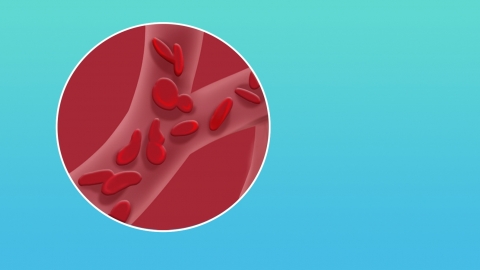What to do about blocked blood vessels
Vascular blockage may be caused by unhealthy lifestyle habits, aging, hypertension, diabetes, and other factors. It can usually be treated through lifestyle improvements, medication, surgical interventions, and so on. If abnormalities occur, timely medical consultation is recommended. Detailed analysis is as follows:

1. Unhealthy lifestyle habits: Long-term smoking, alcohol consumption, lack of exercise, and other unhealthy lifestyle habits may cause damage to the inner walls of blood vessels, leading to fat and cholesterol deposition and gradually forming plaques that cause vascular blockage. Lifestyle habits should be improved, such as quitting smoking and limiting alcohol consumption, increasing physical activity, maintaining a healthy diet, etc.
2. Aging: With aging, blood vessel walls gradually age, lose elasticity, and blood flow slows down, making it prone to form blood clots that cause vascular blockage. It is recommended to maintain a healthy lifestyle, such as balanced diet, moderate exercise, regular medical check-ups, etc., to delay the aging process of blood vessels.
3. Atherosclerosis: Atherosclerosis refers to plaque formed by fat and calcium deposits within the blood vessel walls, leading to vascular narrowing or blockage, accompanied by angina, myocardial infarction, stroke, etc. Treatment options may include vascular interventional surgery or bypass surgery.
4. Hypertension: Hypertension is generally caused by genetic factors, mental stress, etc., and may lead to excessive pressure on the blood vessel walls, causing vascular wall damage, making it easier to form plaques or blood clots, resulting in vascular blockage, accompanied by symptoms such as headache, palpitations, and tinnitus. Medications such as Irbesartan Capsules, Metoprolol Tartrate Tablets, Verapamil Hydrochloride Tablets may be used under medical guidance to control the condition.
5. Diabetes: Diabetes may be related to genetic factors, obesity, and other factors, and may cause damage to the blood vessel walls, accelerate the process of atherosclerosis, increase the risk of thrombosis, thereby causing vascular blockage, possibly accompanied by symptoms such as polydipsia, polyuria, and weight loss. Medications such as Metformin Hydrochloride Tablets, Gliclazide Modified-release Tablets, Repaglinide Tablets may be used under medical guidance to control the condition.
In daily life, maintaining a healthy lifestyle, including a balanced diet, appropriate exercise, and a positive mindset, is important to enhance physical fitness and immunity, thus reducing the occurrence of vascular blockage.








